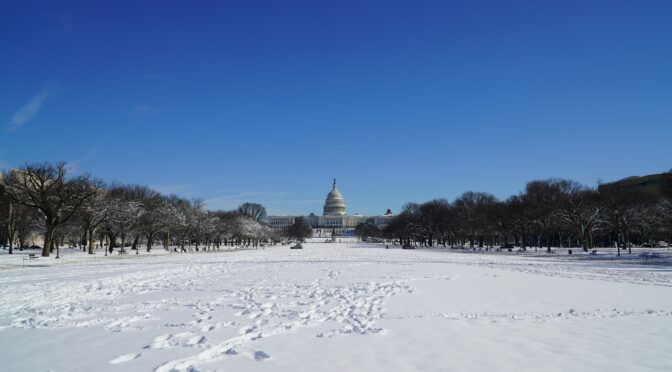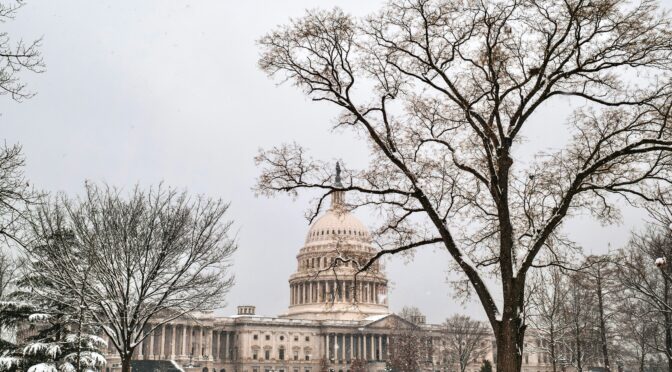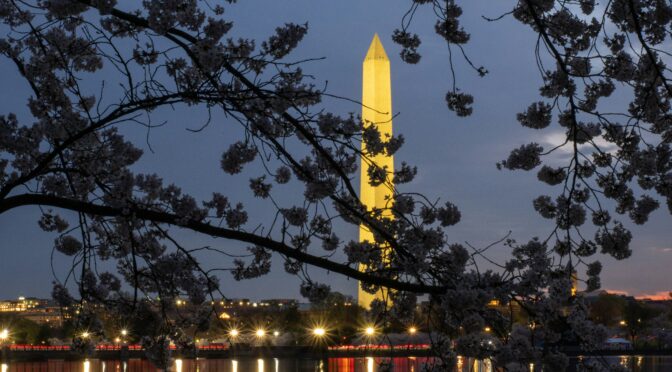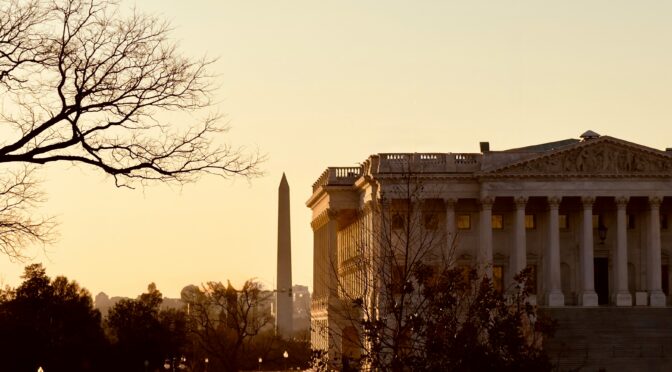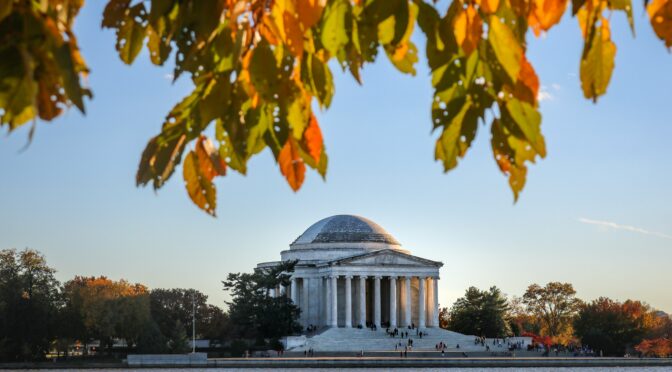By Sean Robins, NACAC’s director of advocacy
Welcome to this issue of the Advocacy Update on NACAC’s Admitted blog. This moment continues to demand sustained, coordinated advocacy. Across Congress, federal agencies, and the courts, decisions are unfolding — often quickly and sometimes with shifting guidance — that will shape college access, affordability, civil rights enforcement, and institutional stability for years to come. Appropriations battles, workforce restructuring, evolving interpretations of federal law, and state-level policy innovation are converging in ways that directly affect students, counselors, and institutions navigating an already complex landscape. In this environment, advocacy is not optional or abstract. It can be as simple — and as powerful — as sharing your story.
Policy & Legislative Updates
Congress ultimately approved an FY 2026 funding package that largely maintains level funding across major education programs, including Pell Grants, TRIO, GEAR UP, Title I, IDEA, and other core investments. That agreement followed a brief partial government shutdown triggered by a lapse in appropriations, even as the Senate had advanced a multi-bill spending package. The shutdown was short-lived, but it underscored ongoing volatility in the federal budgeting process. Importantly, the final bill includes stronger congressional guardrails reinforcing that report language and funding directives tied to higher education programs are not optional, signaling an effort to reassert congressional authority over program transfers, staffing decisions, and interagency agreements.
At the same time, broader questions about federal workforce stability remain. A temporary congressional pause on reductions in force (RIFs) is set to expire, potentially reopening the door to agency layoffs, including at the Education Department. While Federal Student Aid operations have continued during funding lapses, staffing capacity and long-term program oversight remain areas to watch closely.
On FAFSA implementation, the Education Department has reported improved metrics for the 2026-27 cycle, including earlier launch timing, higher satisfaction rates, and more than 8 million submissions to date. New data from the National College Attainment Network also show that FAFSA simplification has significantly expanded Pell eligibility, with more than 1.5 million additional students qualifying for the maximum award over the past two years. However, flat Pell funding raises concerns about long-term purchasing power, particularly as affordability pressures intensify. A combination of proposed federal funding reductions, changes in institutional financial aid practices, and rising tuition may make it more difficult for low-income students to access and complete postsecondary education. While FAFSA completion and college applications among low-income students have increased, enrollment and completion outcomes will likely depend on the availability of sufficient financial aid and support services.
Recent research reinforces both progress and risk in the access landscape. An independent evaluation of Rhode Island’s statewide GEAR UP initiative found that sustained advising beginning in middle school increased college completion by 48 percent for participating students — particularly among Latino/a and Black students — underscoring the impact of long-term, structured support systems. At the same time, the cancellation of $40 million in TRIO grants last fall — the first in the program’s history — has already left nearly 44,000 low-income and first-generation students without services. Although a federal court ruled the cuts unlawful, funding has not yet been restored, and more than 100 programs remain shuttered, creating immediate disruption for students in the middle of critical transition periods.
Civil rights enforcement continues to generate significant concern. A new Government Accountability Office report found that efforts to sideline staff at the Education Department’s Office for Civil Rights cost taxpayers up $38 million while sharply reducing enforcement activity, including virtually no resolution agreements in key areas such as racial harassment, disability discrimination, and sexual assault. Separate data show that OCR did not resolve a single K-12 sexual harassment or assault case in 2025 — a marked departure from prior years.
Legal uncertainty also persists around federal diversity, equity, and inclusion enforcement. Although a federal court blocked the Feb. 14 Dear Colleague Letter, the department has signaled it will continue enforcing its interpretation of Title VI consistent with the Supreme Court’s decision in Students for Fair Admissions v. Harvard (SFFA). At the same time, the department has agreed not to rely on or enforce that specific guidance as part of a lawsuit settlement with the National Education Association. Institutions therefore remain in a complex compliance environment, navigating evolving enforcement postures while continuing to advance lawful, mission-aligned access and belonging efforts.
The Trump administration’s broader posture toward higher education has intensified. Disputes with Harvard University have escalated, including public claims of financial penalties and the Defense Department’s decision to sever certain academic partnerships. Meanwhile, investigations into the use of student civic engagement data and the diversion of federal funds away from student-support grants toward politically favored initiatives — including proposed accreditors unlikely to meet federal standards — raise additional concerns about the direction of federal oversight and resource allocation.
Enrollment data following the Supreme Court’s 2023 SFFA decision show continued redistribution across sectors. While Black and Hispanic enrollment has declined at some highly selective institutions, underrepresented minority enrollment has increased at many flagship public universities, suggesting shifts in where talented students are enrolling rather than a disappearance of demand. At the same time, broader data continue to demonstrate that for most students, admission is becoming more accessible: approximately seven in ten applicants to private colleges and nearly eight in ten applicants to public universities are admitted, with institutions expanding direct admission, test-optional policies, and application simplification to reduce barriers.
Institutions are also adapting their internal models. Increasingly, admissions offices are moving beyond traditional gatekeeping toward student-centered “success coaching” approaches that focus on helping admitted students navigate financial aid, housing, registration, and other enrollment hurdles. The message is clear: access does not end at admission — it culminates in enrollment and completion.
Immigration policy continues to intersect directly with educational access and campus climate. Two Minnesota school districts and the state teachers’ union have filed suit challenging the administration’s decision to revoke long-standing protections limiting immigration enforcement at schools and other sensitive locations. District leaders report disruptions to instruction, declines in attendance, and significant staff time redirected toward crisis response and student support. At the postsecondary level, students at campuses across the country have pushed back against the presence of immigration enforcement agencies at career fairs, raising concerns about safety, campus climate, and institutional values. These debates underscore the real-world implications of federal immigration policy decisions on students’ sense of belonging and stability.
New research also highlights the stakes for undocumented students. An analysis from the Presidents’ Alliance on Higher Education and Immigration and the Migration Policy Institute estimates that roughly 75,000 undocumented students graduate from U.S. high schools each year. While these students demonstrate strong persistence and high graduation rates, their postsecondary pathways are increasingly constrained by enforcement actions and the rollback of tuition-equity policies in several states. With most current graduates ineligible for DACA protections, access to in-state tuition, state aid, and institutional support becomes even more critical. The data reinforce that policy choices at both the federal and state levels directly shape whether academically prepared students can continue their education.
At the same time, legal and structural questions about the U.S. Department of Education remain unresolved. A new Congressional Research Service analysis raises significant concerns about the department’s use of interagency agreements to shift administration of major programs — potentially affecting tens of billions of dollars in funding. CRS notes unanswered questions about statutory authority, congressional intent, and whether such transfers exceed permissible boundaries. These issues are now under active litigation and could have long-term implications for program oversight, accountability, and institutional funding stability.
Concerns about federal oversight also extend to student data and civic engagement. The Education Department has warned institutions against using data from the National Study of Learning, Voting and Engagement (NSLVE), citing potential FERPA concerns and opening investigations into Tufts University and the National Student Clearinghouse. NSLVE has long been used as a voluntary tool to help institutions understand and strengthen student civic participation. Questions remain about the legal basis for the department’s claims, and institutions are watching closely for potential chilling effects on efforts to promote informed civic engagement among students.
Meanwhile, advocates are urging caution as Congress considers reopening the Individuals with Disabilities Education Act (IDEA). While some proposals under discussion are narrowly focused, disability rights leaders warn that revisiting the statute in the current political and enforcement climate could expose foundational protections to broader amendments. For students with disabilities the stability and integrity of IDEA remain central to educational equity and compliance obligations.
Finally, innovation conversations continue at the state level. Massachusetts has authorized pilot three-year bachelor’s degree programs, joining a growing national movement toward accelerated pathways that aim to reduce cost and time to degree while raising important questions about rigor and support.
NACAC Advocacy
Since our last issue, NACAC has remained actively engaged on both funding and legal developments that directly affect college access and the professionals who support students. We publicly applauded Congress’s passage of the FY 2026 Labor–HHS–Education funding bill, which preserves level funding for critical federal programs that advance access, affordability, and student success. By rejecting proposed cuts to key investments, lawmakers reinforced the importance of sustained federal partnership in postsecondary opportunity. This outcome reflects consistent engagement from NACAC members across the country — meeting with lawmakers, elevating student stories, and underscoring the real-world impact of Pell Grants, TRIO, GEAR UP, and other core programs. We will continue advocating to protect and strengthen these investments and encourage members to remain engaged as the next appropriations cycle approaches.
At the same time, NACAC has been closely monitoring and communicating about recent federal court decisions affecting diversity, equity, and inclusion efforts tied to federal funding. While one ruling permits continued enforcement of certain executive actions related to DEI grants and certifications, another blocks broader attempts to withhold funding over lawful educational practices. Together, these decisions create a complex and evolving compliance environment for institutions. NACAC remains concerned that ongoing ambiguity and aggressive enforcement postures risk chilling lawful, mission-aligned practices that are central to expanding student access, enrollment, and success. We will continue providing updates and advocating for clarity, fairness, and policies that support students and the counseling profession.
Ways You Can Take Action
We are continuously updating our Take Action page with opportunities to make your voice heard. If you have not already, I encourage you to advocate on the urgent issues below. You can also view all active advocacy campaigns in the yellow column of the Take Action page.
- Tell Your Senators: Keep Education Programs at the Department of Education
- Tell Congress: Protect FSEOG and Work-Study Funding
- Tell Congress: Save TRIO and Support College Access
- Tell Congress: Prioritize Visa Appointments for International Students and Scholars
- Urge Congress to Protect Postsecondary Pathways
- Tell Congress: International Students are Essential to America’s Safety, Economy, and Global Strength
- Tell Congress to Not Abandon Our National Commitment to Education
- Urge Congress to Protect Disabled Students
- Don’t Flunk the Future Advocacy Toolkit
Taken together, this moment reflects both resilience and strain within our education system. Core federal investments have been preserved for now, FAFSA improvements are expanding Pell eligibility, and research continues to demonstrate the power of sustained advising and support. At the same time, civil rights enforcement, program stability, immigration policy, and institutional autonomy remain under significant pressure.
In moments like this, the voice of the college admission counseling profession matters more than ever. Your advocacy has already helped protect critical programs and reinforce the importance of federal investment in student opportunity. As we look ahead, we will continue to engage policymakers, provide timely analysis, and equip you with the tools to make your voice heard.
As Dr. Martin Luther King Jr. reminded us, “The arc of the moral universe is long, but it bends toward justice.” That arc does not bend on its own — it bends because dedicated professionals, like you, continue to show up for students every day. NACAC remains committed to standing alongside you to protect access, expand opportunity, and ensure that every student has a clear path to postsecondary success.


